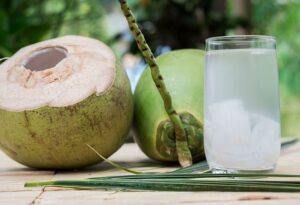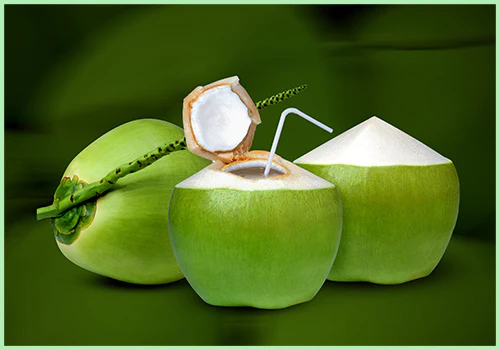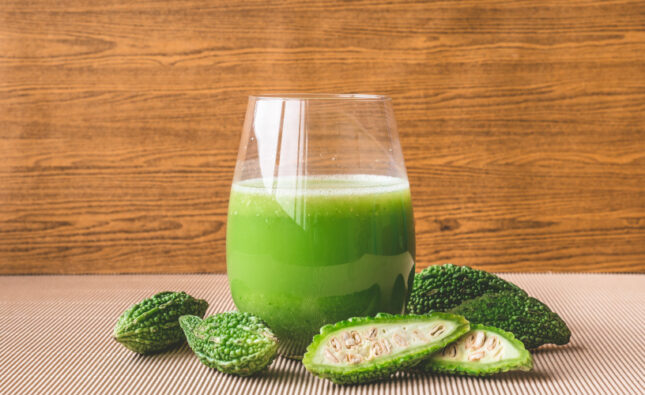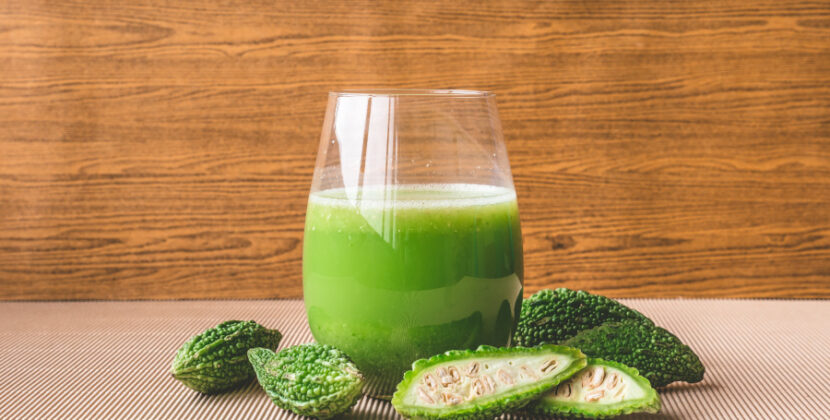Amazing Health Benefits of Coconut Water & Its Nutritional Value
Coconut water is the clear, slightly sweet liquid found inside young, green coconuts. It is the natural liquid that fills the cavity of the coconut when it is still in its early stage of growth. As the coconut matures, this water is gradually replaced by white coconut meat. Coconut water is often harvested from young, green coconuts around 5 to 7 months old. At this stage, the water inside the coconut is abundant, refreshing, and packed with nutrients. The water is usually extracted by piercing the soft husk or using specialized tools to access the liquid.
Coconut water has gained popularity as a natural beverage due to its unique taste, hydration properties, and potential health benefits. It is often consumed fresh, directly from the coconut, or it can be found packaged in bottles or tetra packs for convenience. It’s important to note that coconut water should not be confused with coconut milk. Coconut milk is made by blending or grating the flesh of mature coconuts with water, resulting in a creamy, rich liquid that is commonly used in cooking and as a dairy milk substitute.
Coconut water is known for its refreshing taste and is often consumed as a thirst-quenching beverage in tropical regions. It has gained global popularity as a natural sports drink, a healthy alternative to sugary beverages, and a source of hydration and nutrients. Coconut water is the clear liquid found inside young, green coconuts. It is not to be confused with coconut milk, which is derived from the flesh of mature coconuts. Coconut water is not only refreshing but also offers several potential health benefits. Here are some of the benefits associated with consuming coconut water:
1. Hydration:
Coconut water is an excellent natural hydrator due to its high water content and electrolyte composition. It contains essential electrolytes such as potassium, sodium, magnesium, and calcium, which help replenish fluids and maintain proper hydration in the body.
2. Nutrient-rich:
Coconut water is a good source of various essential nutrients. It contains vitamins such as vitamin C, vitamin B-complex (including folate), and minerals like potassium, magnesium, and calcium. These nutrients are important for overall health, energy production, and maintenance of proper bodily functions.
3. Electrolyte balance:
As mentioned earlier, coconut water contains electrolytes that are crucial for maintaining electrolyte balance in the body. Electrolytes play a role in muscle function, nerve signaling, and maintaining proper pH levels.
4. Antioxidant properties:
Coconut water contains antioxidants, such as vitamin C, which help neutralize harmful free radicals in the body. Antioxidants are known for their potential to reduce oxidative stress and protect against cellular damage.
5. Digestive health:
Some people find that coconut water can aid digestion and relieve certain digestive issues. It contains bioactive enzymes that can help facilitate digestion and promote a healthy gut.
6. Potential blood pressure regulation:
Coconut water is naturally low in sodium and high in potassium. This electrolyte balance may help support healthy blood pressure levels in some individuals.
7. Exercise recovery:
Due to its electrolyte content, coconut water is often consumed as a natural sports drink. It can help rehydrate and replenish electrolytes lost during intense physical activity, making it a popular choice for post-workout rehydration. It’s important to note that while coconut water offers potential health benefits, individual results may vary. Additionally, coconut water does contain calories and natural sugars, so moderation is key, especially for those watching their calorie intake or managing certain medical conditions.
Nutritional Value of Coconut Water
Coconut water is not only a refreshing beverage but also offers several essential nutrients. The nutritional composition of coconut water can vary slightly depending on factors such as the maturity of the coconut and the variety. Here is a general overview of the approximate nutritional value of one cup (240 ml) of coconut water:
- Calories: Approximately 46 calories
- Carbohydrates: Around 9 grams
- Fiber: Roughly 3 grams
- Protein: Approximately 2 grams
- Fat: Negligible amounts (mostly in the form of healthy fats)
- Vitamin C: About 10% of the recommended daily intake
- Magnesium: Approximately 15% of the recommended daily intake
- Potassium: Roughly 17% of the recommended daily intake
- Sodium: Varies, but generally low compared to sports drinks
- Calcium: Varies, but generally contains small amounts
- Vitamin B-complex: Contains small amounts of various B vitamins, such as riboflavin (B2), niacin (B3), pantothenic acid (B5), and folate (B9)
Coconut water is often consumed for its hydrating properties, replenishing electrolytes lost through sweating and physical activity. However, it’s essential to consider individual dietary needs, especially if you have specific health conditions or are closely monitoring your macronutrient and micronutrient intake.







